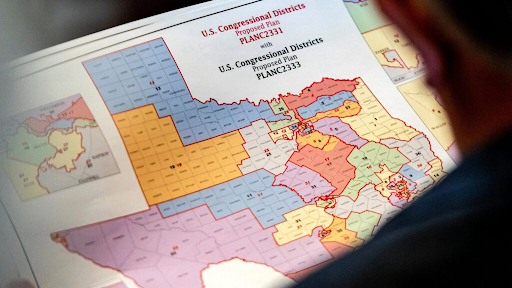On January 6th, the Supreme Court of Texas amended the state constitution so that law schools are no longer required to receive accreditation by the American Bar Association (ABA), the organization in charge of overseeing legal education in the United States. An accreditation is a recognition that the education a law school provides is consistent with standards laid out by the ABA. Graduates from ABA-accredited law schools are eligible to take the Bar, the final exam necessary to become an attorney. Instead of the ABA providing this accreditation, it is now the responsibility of the court.
Read MoreAs artificial intelligence makes its way into more and more aspects of everyday life, it is important to remain aware of its magnitude and potential harm as it relates to our social interactions and the preservation of our originality. Recently, the decisions of companies like Amazon to expand their artificial intelligence branches have shifted the technology’s target toward the job market. AI is a massive venture, and it is growing at a pace with which the general population cannot keep up. Consequently, it is unclear just how severe these job losses and competition for employment will become.
Read MoreOn November 19th, the U.S. Department of Labor announced that it would delay its usual October estimate of the national unemployment rate until December. The recent government shutdown has impeded their ability to release the figures this month. This is not the first time the Bureau of Labor Statistics (BLS) has faced issues with calculating the unemployment rate, as the Trump Administration has raised issues over the integrity of its data collection methods. Recent doubts and delays over the number of unemployed workers in the United States have the potential to prolong the current rise in unemployment for American workers in the coming months.
Read MoreTexas’s blocked map is more than a state dispute; it’s a preview of a brewing national crisis. As courts reconsider long-standing Voting Rights Act protections and both parties escalate their redistricting tactics, American democracy risks slipping into an arms race where voters, not politicians, pay the price.
Read MoreThe killing of two National Guard members in D.C. has reshaped debates surrounding the deployment of troops in American cities and morphed into a catalyst for the Trump administration’s attacks on immigration.
Read MoreThe aim of the walk is to promote peace through non-violence means and meditation, which are the key principles of the Buddhist religion, which has a long tradition of activism for peace.
Read MoreEarlier this month, intense political gridlock between the Trump administration and Democratic senators led to delayed action in getting food into the hands of vulnerable Americans who depend on SNAP assistance. Political leaders and average citizens alike were angered by the fact that the lives of seniors, low-income parents, the disabled, retired veterans, and more have been turned into a partisan issue. Although the government shutdown has now allowed for SNAP funding to resume, new eligibility restrictions will cause millions to lose access to the program.
Read MoreTrump and Hegseth have repeatedly claimed that military leaders are prioritizing administrative concerns and “woke” personnel policies over readiness, combat effectiveness, and national security. By redirecting military resources toward domestic presidential priorities, the administration says it is correcting what it views as years of misaligned spending and leadership.
Read MoreTrump’s demolition of the East Wing and construction of his ballroom of the White House is not only a monument to the volatility of his second term, but also a deeper reflection of the playbook of a president that is determined to bend Washington to his will.
Read MoreUltimately, the federal government shutdown is not merely a failure to pass a budget but about two conflicting visions for America’s role in the lives of its citizens: one centered on public welfare, and the other on fiscal restraint. While both parties are at a stalemate, the burden lies on the shoulders of working-class Americans who rely on federal support to make ends meet.
Read MoreWith the case before the Supreme Court, the consequences of Trump’s National Guard deployment have culminated in a tumultuous moment. The Court’s ruling will, ultimately, shape how future presidents intervene in domestic affairs. Until then, the growing tensions between Washington and state leaders undermine the delicate balance between executive and local power.
Read MoreThis uptick in executions comes after President Donald Trump urged governors to increase their use of capital punishment and pursue new death sentences for the 37 men whose death sentences were commuted to life without parole under the Biden administration.
Read MoreFollowing an Israeli airstrike in Doha, Qatar, on September 9, U.S. Secretary of State Marco Rubio met with Israeli Prime Minister Netanyahu to discuss future collaboration. In a press conference, Rubio defended the Israeli airstrike and reaffirmed the U.S.’s interest in reaching a ceasefire and hostage release agreement. While the Trump administration has not condemned Israel for the attack, it does not support or back the decision.
Read MoreThe operation’s scope is immense, with Customs and Border Protection spokesman David Kim noting that DHS and ICE intend to use all resources at their disposal to investigate and apprehend what they describe as “illegal immigrants”...The Trump administration has also stated that it will be committing National Guard troops to Chicago if necessary. This rhetoric and implementation of resources mark an unprecedented shift in the executive’s approach to immigration enforcement…and has been met with major criticism from advocacy groups, elected officials, and everyday citizens concerned by the increasing militarization of their city’s streets.
Read MorePresident Donald Trump’s recent claim that the common pain reliever acetaminophen “causes autism” has ignited a storm of controversy at the intersection of medicine and politics. Speaking at a White House event alongside Health and Human Services Secretary Robert F. Kennedy Jr., Trump urged pregnant women to avoid the drug, better known under the Tylenol brand. The controversy not only underscores the challenges of communicating uncertain science but also raises pressing questions about how political leaders shape public trust in health guidance.
Read MoreSince President Trump took office in January, 15 migrants have died in detention centers, with 10 deaths occurring between January and June alone. Georgia Senators Jon Ossoff and Raphael Warnock sent a letter to Homeland Security Secretary Kristi Noem, requesting more information about the recent surge. Now, both ICE’s failure to enforce its own regulations and the Department of Homeland Security’s lack of oversight raise serious concerns about how immigrants will continue to be treated in U.S. custody.
Read MoreThe White House has announced a deal that will give tech company Oracle, led by an avid Trump supporter, Larry Ellison, control over TikTok’s algorithms and data. Many are concerned with Oracle’s previous history of mishandling user data, as well as the company’s close ties to the Trump administration. TikTok's possible further “Trumpification”, or the influx of pro-Trump media, could lead to further polarization on the app and in America’s youth.
Read MoreAn endorsement from Hochul, a powerful establishment figure, could help further solidify Mamdani’s lead in New York City’s mayoral race and reinforce his path to victory in November. However, it remains to be seen whether it represents a genuine shift towards unity or simply an outlier in a Democratic party defined by infighting.
Read MoreOn September 12th, Missouri became the latest state to redraw its voting patterns under the backing of President Trump. This plan, implemented by Republican lawmakers, aims to redistrict Missouri so that Republicans retain seven of eight congressional districts, a small piece of the redistricting puzzle that strives to help Republicans hold the House amidst a presidency that has lost seats in the past.
Read MoreEach defendant was charged with eight felony counts, including forgery and conspiracy to commit forgery, on the assertion that the group of Republicans had falsely claimed to be Michigan’s “duly elected and qualified electors” for president and vice president of the 2020 election.
Read More



















